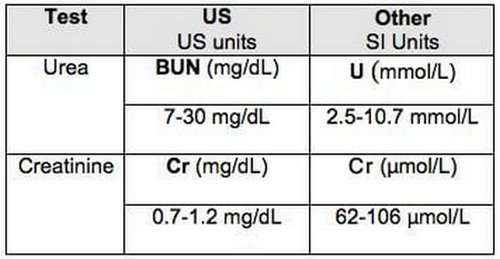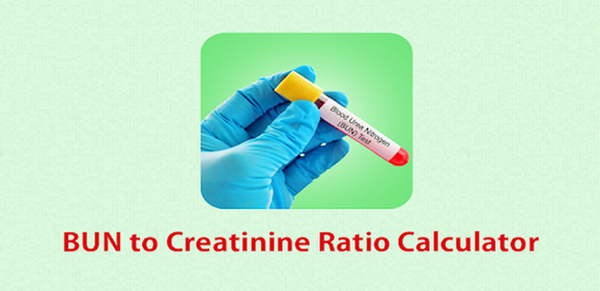Your doctor’s office will send the blood sample to a lab to be analyzed. You should get the results in a few days, depending on how fast the lab and your doctor’s office can work.
What Is a Blood Urea Nitrogen Test?
Your doctor may order a blood urea nitrogen test as part of a routine health screening. It helps them see how well your kidneys are working.
Urea nitrogen is a normal waste product that your body creates after you eat. Your liver breaks down the proteins in your food — and while it does that, it creates blood urea nitrogen, also known as BUN. Your liver releases the substance into the blood, and it eventually ends up in your kidneys.
When your kidneys are healthy, they remove the BUN, usually leaving a small amount of it in the blood. But for the most part, your kidneys get rid of it by flushing it out of your body through urine.
When your kidneys are not healthy, they have trouble removing BUN and leave more of it in your blood.
The blood urea nitrogen test, which is also called a BUN or serum BUN test, measures how much of the waste product you have in your blood. If your levels are off the normal range, this could mean that either your kidneys or your liver may not be working properly.
Why You Get the BUN Test
Your doctor may order a BUN test as part of a routine checkup. It may be one of several blood tests that you get.
If you have a kidney condition, the test is a way to check what your BUN levels are before you start a medication or treatment. Also, it’s standard for a BUN test to be given when you’re in the hospital for certain conditions.
If your doctor suspects you may be getting kidney problems, they may order the BUN test.
Tell your doctor if you have the following symptoms, which can be signs that something is wrong with your kidneys:
● A change in how much you urinate
● Pee that is foamy, bloody, discolored, or brown
● Swelling in your arms, hands, legs, ankles, around your eyes, face, or abdomen
● Pain in the mid-back where kidneys are located
● You’re tired all the time
How Do I Prepare for the Test?
Before the blood test, tell your doctor what medications you’re taking. If any of them might alter the test result, your doctor may ask you to stop taking them for a period of time.
If you’re only getting a BUN test, you can eat and drink. But if you’re getting other blood tests, your doctor may give you directions that may include fasting before the test.
What Happens During the Test?
A lab tech will take a sample of your blood from a vein in your arm or the back of your hand. You may feel a slight sting when the needle pricks through your skin.
It may feel a little bit sore afterward, but you can go straight back to your everyday activities.
Your doctor’s office will send the blood sample to a lab to be analyzed. You should get the results in a few days, depending on how fast the lab and your doctor’s office can work.
Understanding Your Results
Your result will be a number that measures how much BUN is in your blood. The range considered normal is between 7 to 20 milligrams per deciliter. (A milligram is a very tiny amount — more than 28,000 to an ounce, and a deciliter is equal to about 3.4 ounces).
If your test results are not in that range, talk to your doctor.
Several things can affect your BUN test results, so having a BUN level that is lower or higher than the normal range doesn’t always mean there is a problem.
Things that affect your BUN level might include:
● High-protein diet (may cause high BUN levels)
● Low-protein diet (may cause low BUN levels)
● Several medications, including steroids and antibiotics (increased or decreased BUN levels)
What High BUN Levels Can Mean
High BUN levels can also indicate various problems with your kidneys. Talk to your doctor about what could be causing the problem and plan your next steps.
High levels can also indicate the following:
● Urinary tract obstruction (blockage from being able to pee)
● Congestive heart failure (when your heart doesn’t pump blood to your body like it should)
Low BUN levels are rare. If you have low BUN levels, it could indicate:
● Malnutrition (when your diet doesn’t have enough nutrients or your body can’t take them in well)
● Overhydration (having too much fluid)
But a BUN test is not a way to diagnose these issues, so more tests may be needed
Creatinine Test
Your doctor may also order a creatinine test, which is another blood test that also checks your kidney health. This is because the BUN level by itself doesn’t always reveal much.
When your BUN levels are compared with your creatinine levels, it gives a fuller picture of what’s happening with your kidneys. This is known as the BUN/Creatinine ratio.
Creatinine is a waste product from your muscles that is also filtered by your kidneys. Like BUN, high levels of creatinine could mean there is a lot of waste product that hasn’t been removed by the kidneys.
The ideal ratio of BUN to creatinine falls between 10-to-1 and 20-to-1.
Having a ratio above this range could mean you may not be getting enough blood flow to your kidneys, and could have conditions such as congestive heart failure, dehydration, or gastrointestinal bleeding.
A ratio below the normal range could mean liver disease or malnutrition.
Show Sources
American Association for Clinical Chemistry: “Blood Urea Nitrogen.”
University of Rochester Medical Center: “Blood Urea Nitrogen.”
National Kidney Foundation: “Tests to Measure Kidney Function.”
Mayo Clinic: “Blood Urea Nitrogen Test” and “Heart Failure.”
Scripps Health Foundation: “BUN — Blood Test.”
U.S. National Library of Medicine: “Gastrointestinal Bleeding.”
American Association for Clinical Chemistry: “Creatinine.”
National Health Service (U.K.): “Malnutrition.”
BUN/Creatinine Ratio Understand (High vs. Low Levels, Normal Range)
A BUN creatinine ratio is a blood work done to detect acute or chronic renal disease/failure.
Both BUN and creatinine are filtered in the kidneys and excreted through urination and they are a perfect parameter for identifying the overall functions of the kidneys. (1, 2)

Image 1: The standard unit of measurements for BUN and creatinine.
Picture Source: lifeinthefastlane.com
Understanding the difference between BUN and creatinine test and their relationship
BUN Test
BUN stands for Blood Urea Nitrogen. The BUN test measures the level of nitrogen in the blood.
Doctors order this test to assess the functions of the kidneys and liver.
Nitrogen is urea’s waste product. The function of the kidneys is to filter the urea so that waste products will be removed from the body through urination.
The liver continuously produces urea and so it is just normal to have a small amount of urea in the blood. If the urea in the blood is abnormally high, it is an indicator that the kidneys are not functioning well.
There could be something wrong with your kidneys that need to be addressed properly and timely. (1, 2, 3)
Creatinine Test
A creatinine is a molecule produced by muscle metabolism. It is transported through the bloodstream and filtered in the kidneys and excreted through the urine.
The muscle mass of a person defines the rate of creatinine formation. Ideally, the level of creatinine remains constant throughout the day.
If the level of creatinine is high, then it indicates that there is something wrong with your kidneys. (3, 4)

Picture 2: BUN and creatinine ratio is measured using the above formula.
Photo Source: www.labpedia.net
What is a BUN creatinine ratio and its significance?
The BUN and creatinine test results are combined by the doctor to determine the BUN to creatinine ratio.
This is to find out the functions and overall condition of the liver and kidneys. It is used by the doctor in formulating an accurate diagnosis of health problems that have something to do with the kidneys.
Other reasons for taking BUN to creatinine ratio test include the following:
- Evaluate the functions of the kidneys
- Diagnose kidney-related diseases such as acute and/or chronic renal disease and urinary tract blockages
- Monitor the effectiveness of the treatments related to kidney problems
- It helps in diagnosing gastrointestinal bleeding
- It is useful in diagnosing severe dehydration (causes the BUN level to rise) (2, 3, 4, 5)
What can cause a high bun creatinine ratio?
- Congestive heart failure
- Urinary tract obstruction
- Gastrointestinal bleeding
- Trauma (5, 6)
What can cause a low BUN creatinine ratio?
- Liver-related diseases
- Low protein diet
- Severe polyuria and polydipsia
- Diabetes mellitus
- Cushing’s disease (6, 7)
What can cause an increase creatinine with normal BUN level?
- Severe muscle trauma
- Acute myositis
- Too much intake of ascorbic acid (vitamin C)
- Intake of cephalosporins (7)
What can cause a high BUN and normal creatinine?
- Gastrointestinal hemorrhage
- High protein diet
- Fever
- Intake of corticosteroids or tetracyclines (8, 9)
What can cause a low creatinine and normal BUN?
- Decrease muscle mass
- Severe cachexia (9, 10)
What to keep in mind before undergoing a BUN creatinine ratio test?
Your protein intake can significantly affect the test result. A high protein intake may cause an abnormally high level of BUN. On the other hand, a low protein intake may lead to an abnormally low level of BUN.
If you are going to undertake a BUN creatinine ratio test, make sure that you consume a normal amount of protein and that you are properly hydrated.
That way, you will be able to come up with an accurate BUN creatinine ratio test result. The result can also be affected by pregnancy. (2, 5, 8, 9)
“Click on image for the calculator”

Photo 3: A blood sample is drawn from the patient’s arm and sent immediately to the lab for testing and evaluation.
Image Source: lh3.googleusercontent.com

Image 4: BUN and creatinine are two parameters used to detect the condition of the kidneys.
Picture Source: i.ytimg.com
How is the test taken?
The procedure is performed by a lab technician. A blood is drawn from your upper arm using a sterile needle. The entire process would take around 5 to 10 minutes depending on the visibility of your vein.
What is a normal BUN and creatinine level ratio?
To get the BUN creatinine ratio, the BUN count is divided by the creatinine count.
What is the normal BUN creatinine ratio?
The ideal ratio is between 10:1 and 20:1. If the result is higher than the numbers mentioned, it indicates that there is a high level of BUN in the blood.
It is linked with kidney-related diseases or decreased flow of blood to the kidneys secondary to dehydration or congestive heart failure. If the result is below the normal ratio, then it could indicate malnutrition or liver-related diseases. (3, 6, 9, 10)
Final Word
The BUN and creatinine are both end products of metabolism. The BUN and creatinine are waste products that need to be filtered by the kidneys and excreted through urination.
A small amount of BUN and creatinine may be present in the blood and are just normal. However, if the ratios are too high or too low, it could signal that there is something wrong in your kidneys and liver.
A high BUN and creatinine ratio could indicate a possible kidney-related problem.
References:
- https://en.wikipedia.org/wiki/BUN-to-creatinine_ratio
- https://www.questdiagnostics.com/testcenter/TestDetail.action?ntc=296
- https://www.sciencedirect.com/topics/medicine-and-dentistry/bun-to-creatinine-ratio
- https://www.healthlabs.com/bun-creatinine-ratio-testing
- https://acutecaretesting.org/en/articles/urea-and-creatinine-concentration-the-urea-creatinine-ratio
- https://lifeinthefastlane.com/ccc/ureacreatinine-ratio/
- https://www.ahajournals.org/doi/abs/10.1161/circheartfailure.112.968230
- https://www.mayoclinic.org/tests-procedures/blood-urea-nitrogen/about/pac-20384821
- https://www.selfhacked.com/blog/bun-creatinine-ratio-high-low-levels-normal-range/
- https://www.beaumontlaboratory.com/test-lab-directory/lab-test-details/?testid=1305
Similar Posts:
- Estimated Glomerular Filtration Rate ( eGFR) Test & Calculators
- Types of Blood Cells
- Urease Test
- Benedict’s Test
- Catalase Test






